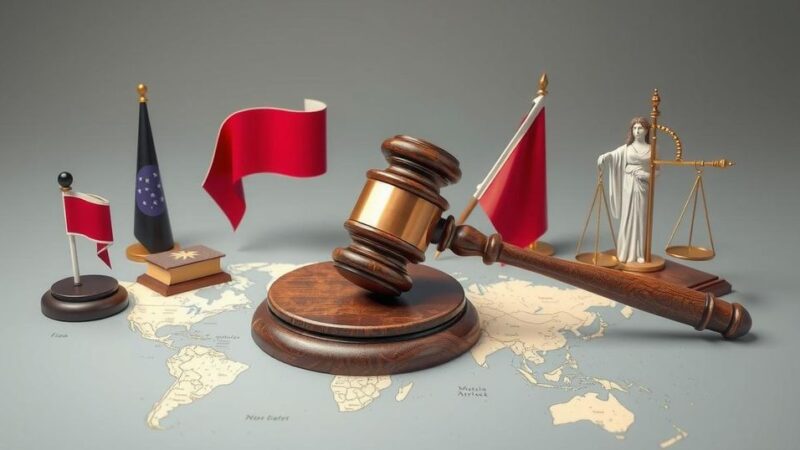Ethiopia has stressed the necessity of its involvement in the formation of the African Union Support and Stabilization Mission in Somalia (AUSSOM), criticizing Somalia’s solo approach. The country has pledged its continued support to stabilize Somalia, while TCCs have highlighted budget shortfalls affecting operations against Al-Shabaab. Somalia opposes Ethiopia’s participation, citing concerns over territorial integrity, amidst escalating regional tensions involving other nations.
Ethiopia has asserted the necessity of its involvement in the establishment of the African Union Support and Stabilization Mission in Somalia (AUSSOM), criticizing Somalia’s perceived unilateral decision-making regarding the mission’s composition. In a gathering of Troops Contributing Countries (TCCs), Ethiopia emphasized their readiness to collaborate in AUSSOM while arguing that their historical contributions to Somalia’s stability must not be disregarded. During this assembly, Ethiopia’s Minister of Defense, Aisha Mohammed, reiterated the country’s commitment to assist Somalia in its stabilization efforts. A joint communiqué from the meeting underscored the “sacrifices made by the TCCs over the last seventeen years” in counter-terrorism operations in Somalia, asserting that these contributions have significantly aided in strengthening the governmental institutions of the Federal Government of Somalia. However, the TCCs have expressed concerns regarding a budget shortfall that hampers operations against Al-Shabaab, the militant group that continues to wield influence over considerable areas of rural central and southern Somalia. The ministers called for a review of the African Union’s funding to ensure the efficacy of operations. Moreover, the defense ministers stressed the importance of integrating lessons learned from the African Union Transition Mission in Somalia (ATMIS) into the planning of the new AUSSOM mission. There was a strong emphasis on the need for consultations with the TCCs throughout the mission design process. In contrast, Somalia has voiced its opposition to Ethiopia’s involvement in AUSSOM, citing concerns over potential infringement on its territorial integrity and sovereignty, especially after Ethiopia’s agreement with Somaliland concerning Red Sea access. The situation has further complicated with Egypt’s military presence in Somalia and its supply of arms to Mogadishu, which prompted Ethiopia to express apprehensions regarding the transition from ATMIS, labeling it potentially perilous for regional stability. Recently, Somalia, Egypt, and Eritrea convened for a tripartite summit in Asmara, where they agreed on initiatives aimed at bolstering Somalia’s capacity to safeguard its borders both on land and at sea.
The formation of AUSSOM comes in the wake of ongoing security challenges in Somalia, particularly following the withdrawal of ATMIS troops. The historical context of Ethiopia’s involvement in Somalia is crucial, as Ethiopian forces have played key roles in stabilization efforts over the past decade and a half. This mission aims to replace ATMIS while addressing gaps in security capabilities in the face of the persistent threat from Al-Shabaab militants. Ethiopia’s insistence on being part of the AUSSOM formation process highlights the broader regional dynamics, including its relationships with both Somalia and other neighboring countries, as well as concerns regarding territorial integrity and sovereignty. Recent developments, including military actions involving other nations, amplify the stakes involved in this transition.
In summary, Ethiopia firmly advocates for its inclusion in the formation of AUSSOM, citing the importance of its contributions to Somalia’s stabilization. The TCCs’ shared experiences over the years underscore the need for proper consultation during the mission’s design. Meanwhile, Somalia’s resistance against Ethiopia’s participation raises concerns about regional tensions, particularly in light of military support from Egypt and Eritrea. The successful establishment of AUSSOM is critical for sustained peace and security in Somalia and the surrounding region, necessitating a collaborative approach among all involved parties.
Original Source: www.garoweonline.com







